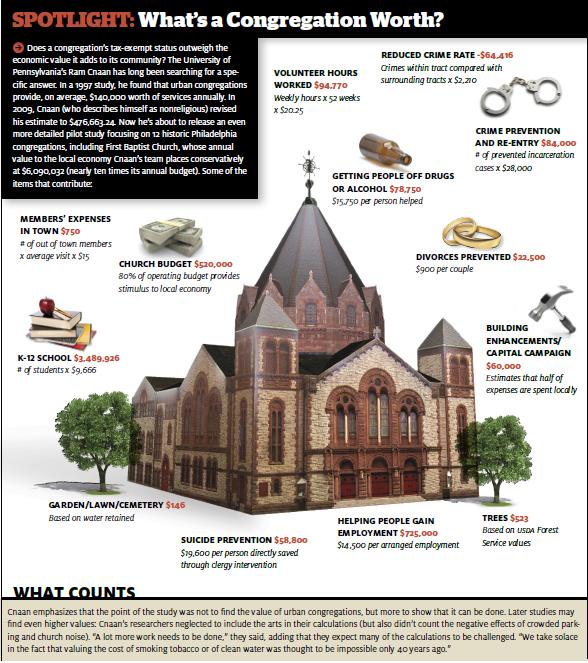(BTW, this post is by Mike Clawson, the very-infrequent-but-still-here Christian contributor.)
I know the answer many atheists would likely give to the question in the title of this post is “nothing”.
However, that may not always necessarily be the case. At least, not according to studies done by U. Penn researcher Ram Cnaan (who describes himself as nonreligious), who has somehow found a way to monetarily quantify all the benefits the average urban congregation brings to their community. According to his calculations the average urban church in Philadelphia provides over $476,663 worth of services annually.
Here’s an illustration from Christianity Today (PDF) for one particular Philadephia congregation whose annual give-back value is over $6 million (click image to enlarge PDF):

Now, I haven’t looked at the actual study, just the articles about it, so I can’t speak to the legitimacy of his methodology or findings. I’m sure, as with any study of this sort, there will be lots to nit-pick about it. Still, to even begin calculating all of these seeming intangibles is an impressive accomplishment, and it raises all sorts of interesting questions about the value of religion in society. But I will leave that topic for all of you to hash out. 🙂



It’s Moving Day for the Friendly ..."
It’s Moving Day for the Friendly ..."
It’s Moving Day for the Friendly ..."
It’s Moving Day for the Friendly ..."